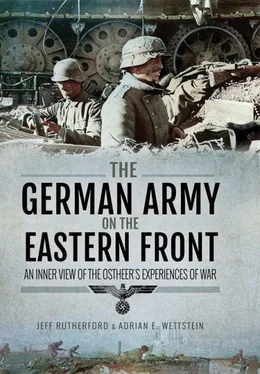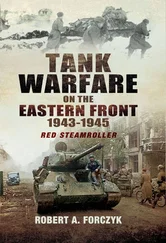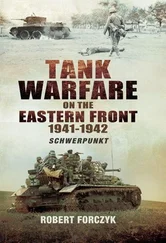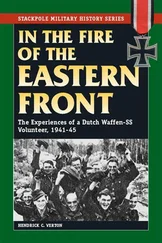d) On 15.10, Nr. 9 of the ‘Lake Ilmen Voice’ and Series 2 of the ‘Tradition Sheets’ came out.
3) Military-Ideological Leadership
a) The ‘Instructions for Military-Ideological Leadership’ were still issued for the instruction of unit commanders. ‘Communication for the Troops’ and the ‘Communication for the Officer Corps’ were regularly distributed. ‘Education and Guidance in the Army’ and ‘What Moves Us’ were issued in an increased amount.
b) Within the units, numerous educational and presentation hours took place. Headmaster Niggel was available for the division with lectures about the demographic-political situation of Germany. The themes chosen by the troops ranged over all areas, for example:
‘The Wisdom of the Soldier’
‘The German Soldiers and the Woman from a Foreign People’ [41]
‘Marriage in War’
‘The Position of the Non-Commissioned Officer’
‘The Fight of the 126th Infantry Division’
c) Special attention was bestowed to the withdrawal in the south of the Eastern Front and, in conjunction with it, the rumours about such measures on the north front. The consistently surfacing claims about a voluntary pulling-out of the positions in front of Leningrad were successfully combated. The development of the situation in Italy also received further vigorous attention.
II) Hilfswillige
The development of the situation naturally brings with it a strain for the volunteers. In contrast, informative lectures by the leader of the Russian care staff and other Russian propagandists were held. The delivery of newspapers occasionally left something to be desired. In general, the attitude of the volunteers remains proper and loyal.
III) Occurrences that have special meaning for the troops’ attitudes!
a) Material:
| Positive |
Negative |
| Good accommodation |
Absence of everyday items (razor blades, shoe polish, lighting devices) |
| Good food |
| Good personal hygiene |
| Good leave situation |
b) Spiritual:
Sufficient supply with film and variety shows
Sufficient allocation of literature
The establishment of university courses in Tartu [Dorpat] and Tallinn [Reval]
c) Combat events
| Positive |
Negative |
| Positive development in Italy and in the Aegean. |
Continual terror attacks against the homeland, continual withdrawals in the south of the Eastern Front. |
| Repeated defence of strong storm troops in our own sector. |
Little success in the U-boat war. |
IV) Rooms are generally available in sufficient amount.
V) Wishes of the troops:
More radio receivers, more light reading material, table tennis, musical instruments of all types. Improvement of the field postal service.
VI) Special:
The commemoration day for the founding of the division on 15.10 played a special role. After careful preparation, the day was festively celebrated by the entire division. In addition to musters and commemorations that took place in every unit even in the most forward line, a celebration that took place at the divisional headquarters stood at the centre. In the presence of the commanding general of IInd Army Corps, General der Infanterie [Wilhelm]Wegener, and in front of delegations from all troop sections, a large military concert and a celebration in a closed hall with a collective meal, music, and variety shows took place. This celebration substantially contributed to the further coherence of the unit.
This report proves instructive on several levels. First, it highlights the army’s increasing reliance on ideological instruction for the troops, as one of the document’s primary emphases was the creation of a framework to ensure the men were receiving the proper information. It was also clear that the war in the east stood at the centre of the propaganda effort. The army was trying to convince the men not only of the great importance of the conflict for Germany’s future, but also of the special role played by the 126th Infantry Division in this struggle.
Such ideological material, however, was not delivered in a crude fashion. This leads to the second point: working within the larger context of Nazi propaganda practices that believed that the most effective means of transmission was through subtle means, the army utilized seemingly neutral methods to spread Nazi ideas and values. Books, films and theatre groups all combined entertainment with education. And this flows into the third important point: alongside the ideological material were more banal, yet perhaps more important items that maintained the troops’ morale: cards, cigarettes, pipes and mirrors, among others. The availability of everyday articles was recognized by the welfare officer as having the utmost importance in keeping the men’s spirits high; as noted in the report, the soldiers’ greatest desires were for more basic items, such as razors and shoe polish.
The report also examined how the men understood the larger context of the war. This was reflected in its observations on how the troops reacted to news of the war in Italy and the North Atlantic. Its discussion of the use of Hilfswillige also explored this topic, though in a way that hit much closer to home for the division. While the suspicion of these Russian volunteers clearly emerged from the document, the attempt to ideologically mould them into conscientious soldiers for the German cause was seen as an absolute necessity; geistige Betreuung was thus utilized at all stages of the division’s develop, from its initial training, as discussed in chapter 6, all the way through to its deployment at the front.
In June 1943, the 8th Panzer Division’s welfare officer submitted a report on his activities over the preceding months. While the report is focused on the primary messages he shared with members of the division, detailing the various meetings he participated in, and the complaints of the troops (including SS-army tensions), perhaps the most interesting aspect of the document concerns his lectures in Minsk. [42]
During the reporting period, I held lectures before 72 units with altogether 146 officers, 894 NCOs, and 4,407 men about the following themes:
1) Political and military development during the war.
2) Enemy propaganda and rumours.
3) The spiritual orientation of soldiers before and after leave.
4) The military situation.
5) The political task of the German soldier towards the Russian population.
6) Causes and goals of the Second World War
7) Political Soldierly
On 14. and 15.5.43, participation in a meeting of Third Panzer Army’s division care officers in Vitebsk.
The same thing on 28. and 29.6.43.
On 16.5.43, lecture in Vitebsk theatre for the units stationed there about the theme ‘Causes and Goals of the Second World War and Enemy Propaganda.’
The same thing on 25.5.43.
From 8–11 June 1943, lectures in the division’s rehabilitation home and at the maintenance company in Minsk.
The audience’s interest was great, the subsequent debate was lively. The following questions were repeatedly asked:
‘Did we need to shatter ourselves and occupy all of Europe?’
‘Was it correct to march so deeply into Russia?’
‘Why haven’t the Japanese begun the war against the Soviet Union?’
‘How will Turkey act?’
‘Is it even possible to defeat the Bolsheviks militarily?’
The existence of SS-units per se and their frequent appearances in illustrated magazines and the weekly news reels were criticized.
Complaints were directed on the part of the men from the entire division, that despite the orders of the Führer and the Reichsmarschall to the contrary, men are ordered to attend mass and those who did not attend voluntarily were ordered carry out especially dirty work and the indirect form of address for superiors is still customary.
Читать дальше






![John Stieber - Against the Odds - Survival on the Russian Front 1944-1945 [2nd Edition]](/books/405234/john-stieber-against-the-odds-survival-on-the-russian-front-1944-1945-2nd-edition-thumb.webp)





